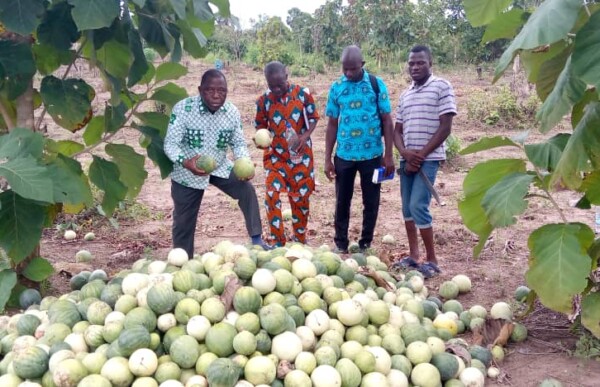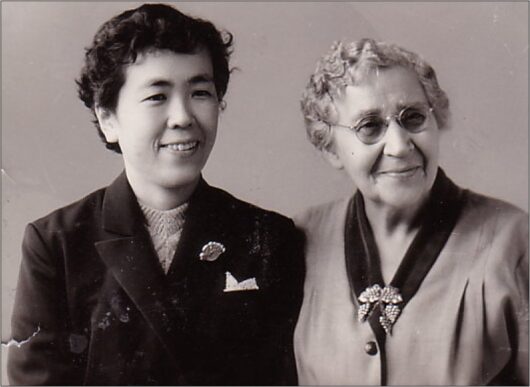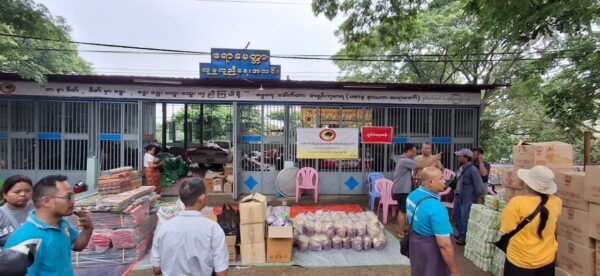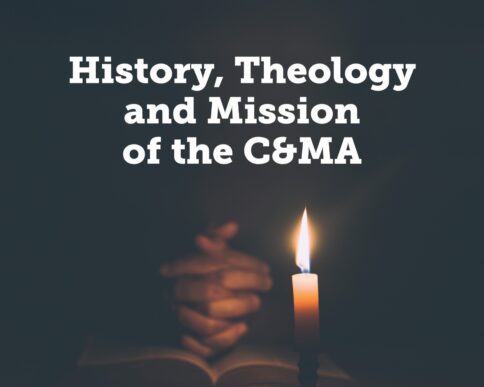Farmers in Cote d’Ivoire Blessed by New Sustainable Agricultural Techniques

Related News

Mutsuko Ninomiya: Pioneer Missionary from Japan to Brazil

Alliance Churches in Thailand and Myanmar Respond to Dual Crises
Thanks to a joint effort involving horticulturists, the C&MA church of Cote d’Ivoire and the Alliance World Fellowship (AWF), the Assakra community has improved the food supply and socioeconomic situation of farm families of the Toumodi Department.
The C&MA church in Cote d’Ivoire is made up mainly of farmers and youth. The COVID-19 pandemic made their social and economic life difficult, especially in the cities of Abidjan, Bouaké and Yamoussoukro. Those chosen by the church to be part of this project were farmers who lived in the village of Assakra and owned a food crop and/or an orchard. They accepted teamwork and training from other farmers, were willing to be part of the whole process, and had the support of the village chief and the church.
The project began with the weekly dedication of the team to help the farmers by training them in Zaï techniques for the cultivation of African pistachios. The Zaï technique makes use of small planting pits in which organic matter such as manure, compost, or dry biomass is buried before planting the pistachio seeds. The addition of organic matter improves absorption and increases soil nutrients, making poor farmland finally available for cultivation.
Farmers like Jean adopted the new sustainable agricultural techniques and technologies of Farming God’s Way (FGW). They produced compost themselves, made Zaï holes and applied the mulching technique. Mulching covers the soil surface around the plants with an organic or synthetic mulch to create favorable conditions for plant growth and better crop production. It also insulates the soil to protect organisms and plant roots from adverse weather conditions.
Despite forest fires and rodents that limited the harvest results, farmers were able to obtain better food production. Their training in cultivation and organized agricultural techniques was helped by the supply of organic matter and seeds, the introduction of new food crops, and the training of qualified and capable personnel. That enabled farmers like Klomi Gracia to establish a functional production distribution network that guaranteed her a steady production of crops and made sales easier.
With the resulting increase in income, farmers were able to buy school supplies and improve their children’s education. Some of the participants were then able to enjoy a vacation or meet needs during the Christmas season of the pandemic. The groups of women and youth who were trained were also able to offer paid services to the project to others seeking agricultural services.
The AWF Global Response to COVID-19 was initiated to provide member churches with much-needed food. Farming insecurity and lack of food had significantly affected people’s health. The new development project has provided local leaders with an opportunity to implement Income Generating Activities (IGA) such as planting pistachio nuts, beans, and grains. The project also teaches soil improvement principles using compost, guano, and cow dung, as well as providing technical supervision and teaching of organizational skills.
In addition, the project aroused enthusiasm for participation in Bible studies led by Pastor Konan Germain. The sessions brought together about 30 church members focusing on the Church and Community Mobilization Process (CCM), a community development approach pioneered by the international NGO Tearfund UK.
The strong commitment to the project has resulted in an increase in its credibility. The Ivorian C&MA has invited more stakeholders to this project, including church leaders and the National Agency for Rural Development (ANADER) which has provided some advice. They also have sought the support of the Assakra village community and its chiefdom.
We thank God for how he has used the church, the government, and each family to glorify his name through what he has done in their lives. Let us pray for them so that this work spreads to other villages.


